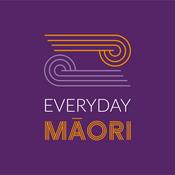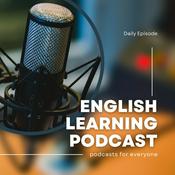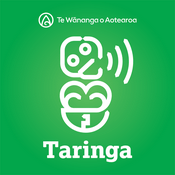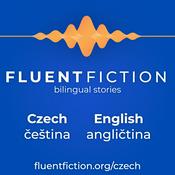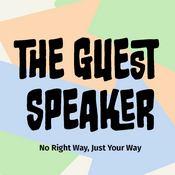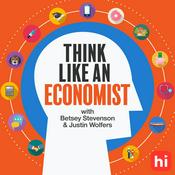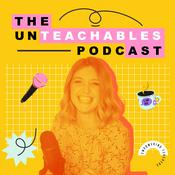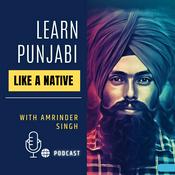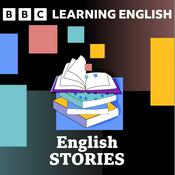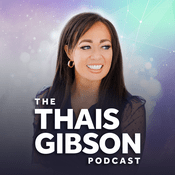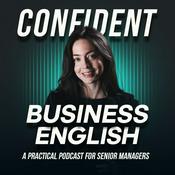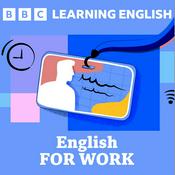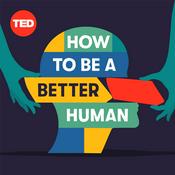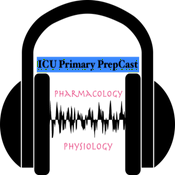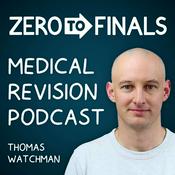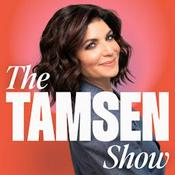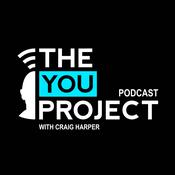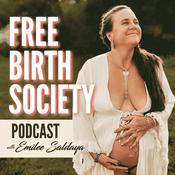'Mind the Kids': an ACAMH podcast
The Association for Child and Adolescent Mental Health
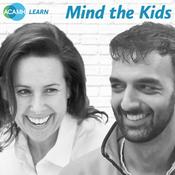
Latest episode
387 episodes
- hThis powerful episode dives into how a mother’s own childhood trauma can quietly shape the emotional lives of her children – and how that cycle can be broken. Drawing on a rare 12‑year study of around 300 mostly Black, highly disadvantaged families in the US Midwest, Dr Meeyoung Min unpacks how her team followed mothers and babies from birth through early adolescence to understand what really drives later mental health.
Far from blaming mothers, the episode situates these risks in a wider context of poverty, limited opportunity, and unresolved trauma, and leans into hope rather than inevitability. Dr Min makes a compelling case for pregnancy and the early postnatal period as a “golden window” for support – from practical help and non‑judgemental social networks to community and faith groups that wrap around both parent and child – showing that with the right support, intergenerational patterns of harm can be disrupted and futures can be changed.
The conversation reveals two major pathways: first, mothers who experienced more childhood maltreatment tend to struggle more with their own mental health, making it harder to stay emotionally available, regulate feelings, and use calm, consistent parenting – all of which is linked to greater anxiety, low mood, and acting‑out behaviours in their 12‑year‑olds. Second, prenatal exposure to substances such as cocaine, alcohol, tobacco, and marijuana appears to alter developing brain systems involved in stress, independently increasing the risk of externalising behaviour.
You can read the main JCPP paper discussed in this episode, “Intergenerational transmission of maternal childhood maltreatment, prenatal substance exposure, and internalizing and externalizing symptoms in early adolescence at age 12” via https://doi.org/10.1111/jcpp.70030
Get a free CPD/CME certificate for listening to this podcast by registering for a FREE ACAMH Learn account at https://www.acamhlearn.org
Visit https://www.acamh.org
Facebook and LinkedIn search / ACAMH
Instagram https://www.instagram.com/assoc.camh
Bluesky https://bsky.app/profile/acamh.bsky.social
X https://x.com/acamh S6 Ep5: Mind the Kids - How motor & social skills shape language learning, as captured by genes
12/2/2026 | 46 mins.What if a baby’s wobbly reach for a spoon or a make-believe tea party could quietly change the way language unfolds? In this episode of Mind The Kids, “Building Blocks: How motor and social skills shape language learning, as captured by genes” host Mark Tebbs talks with Dr Beate St Pourcain and Dr Ellen Verhoeff from the Max Planck Institute for Psycholinguistics about what it really means to develop language in a developing body.
Drawing on their JCPP study of over 6,000 children in the ALSPAC cohort, they follow a developmental cascade that starts with early gross motor milestones like sitting and crawling, moves through culturally shaped self-care and pretend-play skills like using a spoon or hosting a tea party, and then flows into vocabulary and grammar between 15 and 38 months. Along the way, they unpack how genetics and environment intertwine, why social interactions and playful routines act as gateways into language rather than just nice “add-ons,” and what this might mean for parents, carers, clinicians and educators who want to support communication in both autistic and non-autistic children.
You can read the main JCPP paper discussed in this episode, “Developing language in a developing body: genetic associations of infant gross motor behaviour and self-care/symbolic actions with emerging language abilities” via https://doi.org/10.1111/jcpp.70021
Get a free CPD/CME certificate for listening to this podcast by registering for a FREE ACAMH Learn account at https://www.acamhlearn.org
Visit https://www.acamh.org
Facebook and LinkedIn search / ACAMH
Instagram https://www.instagram.com/assoc.camh
Bluesky https://bsky.app/profile/acamh.bsky.social
X https://x.com/acamh- Why do some children find learning a little harder, and could their genes hold part of the answer? In this episode of Mind the Kids, entitled ‘Genetic clues to classroom struggles’, host Mark Tebbs talks with Dr. Marie-Pier Larose from the University of Turku about her recent JCPP paper.
They delve into how children’s genetic predispositions—especially those linked to attention and behaviour—can influence how they learn and thrive in school. Marie-Pier shares insights from a major international study exploring the connection between early attention difficulties, mental health, and academic achievement. The discussion highlights the power of early support, the role of teachers and parents, and why understanding these genetic clues can help children reach their full potential—both in the classroom and beyond.
For more details read the JCPP paper ‘Associations between genetic predisposition to mental health problems and academic achievement: a developmental perspective using two population-based cohorts’ Marie-Pier Larose, Isabel Schuurmans, Edward D. Barker, Liliana Garcia Mondragon, Henning Tiemeier, Irwin Waldman, Charlotte Cecil. https://doi.org/10.1111/jcpp.70043
Get a free CPD/CME certificate for listening to this podcast by registering for a FREE ACAMH Learn account at https://www.acamhlearn.org
Visit https://www.acamh.org
Facebook and LinkedIn search / ACAMH
Instagram https://www.instagram.com/assoc.camh
Bluesky https://bsky.app/profile/acamh.bsky.social
X https://x.com/acamh S6 Ep4: Mind the Kids - Energized or at risk? Distinguishing subclinical hypomania in adolescents
28/1/2026 | 42 mins.Energized, driven, “on a high” – or at the edge of something more serious? This Mind the Kids episode, “Energized or at risk? Distinguishing subclinical hypomania in adolescents”, explores how to tell the difference between healthy teenage intensity and something more problematic.
Host Mark Tebbs talks to Dr. Georgina Hosang about the topic of hypomania, as she draws on her expertise and research. The conversation unpacks what hypomania can look like at home and at school, how it overlaps with typical mood swings and ADHD, and other conditions, and which red flags suggest it’s time to seek specialist help.
Listeners will hear practical guidance on what parents, carers, teachers, and young people themselves can watch for, how to talk about concerns without stigma, and why early recognition matters for safety, learning, and long‑term wellbeing.
This episode is for anyone supporting adolescents who seem unusually “switched on”, wired, or risk‑taking – and who wants clear, compassionate advice on when to simply ride the wave, and when to seek assistance.
For more details read the JCPP paper ‘Subclinical hypomania, psychiatric and neurodevelopmental diagnoses: phenotypic and aetiological overlap’ by Georgina M. Hosang et al. https://doi.org/10.1111/jcpp.70045
Get a free CPD/CME certificate for listening to this podcast by registering for a FREE ACAMH Learn account at https://www.acamhlearn.org
Visit https://www.acamh.org
Facebook and LinkedIn search / ACAMH
Instagram https://www.instagram.com/assoc.camh
Bluesky https://bsky.app/profile/acamh.bsky.social
X https://x.com/acamhS6 Ep2: Mind the Kids -When language surprises: unexpected bilingualism in autism
21/1/2026 | 46 mins.How can a child suddenly start speaking a language no one around them uses? This Mind the Kids episode, “When language surprises – unexpected bilingualism in autism” dives into the striking phenomenon of autistic children spontaneously acquiring and using a language that is absent from their home, school, and social world.
Drawing on new research, host Mark Tebbs speaks to David Gagnon, and Dr. Alexia Ostrolenk, on this topic, and their JCPP paper. With minimally speaking autistic children, the discussion explains what unexpected bilingualism is, why it challenges traditional ideas about the role of social interaction in language learning, and how it can reveal an alternative pathway into language. Listeners will hear how parents first notice these surprising language skills, why they may be both confusing and hopeful, and what this means for supporting communication and designing interventions.
The episode offers clear take home messages for families, educators, and clinicians on recognising hidden abilities, following a child’s interests (from letters and numbers to YouTube subtitles), and rethinking “plateau” periods as times of invisible but important development.
For more details read the JCPP paper ‘Early manifestations of unexpected bilingualism in minimally verbal autism’ David Gagnon, Alexia Ostrolenk, Laurent Mottron https://doi.org/10.1111/jcpp.70032
Get a free CPD/CME certificate for listening to this podcast by registering for a FREE ACAMH Learn account at https://acamhlearn.org/Home
More Education podcasts
Trending Education podcasts
About 'Mind the Kids': an ACAMH podcast
These podcasts are an invaluable resource for anyone interested in child and adolescent mental health. They bridge the gap between rigorous research and practical application, featuring expert discussions on mental health. Each episode highlights cutting-edge studies offering insights into findings, and implications for practice.
The series caters to clinicians, researchers, and those interested in mental health. Available on major platforms like Spotify and Apple Podcasts, it’s an accessible way to stay informed about advancements in the field.
Visit our website for a host of free evidence-based mental health resources.
Podcast websiteListen to 'Mind the Kids': an ACAMH podcast, anything goes with emma chamberlain and many other podcasts from around the world with the radio.net app

Get the free radio.net app
- Stations and podcasts to bookmark
- Stream via Wi-Fi or Bluetooth
- Supports Carplay & Android Auto
- Many other app features
Get the free radio.net app
- Stations and podcasts to bookmark
- Stream via Wi-Fi or Bluetooth
- Supports Carplay & Android Auto
- Many other app features


'Mind the Kids': an ACAMH podcast
Scan code,
download the app,
start listening.
download the app,
start listening.



